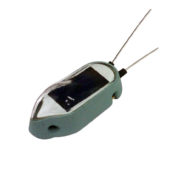This website uses cookies so that we can provide you with the best user experience possible. Cookie information is stored in your browser and performs functions such as recognising you when you return to our website and helping our team to understand which sections of the website you find most interesting and useful.

-
Filter products by Segment
- View All Products
- Avian
-
Freshwater
-
Filter products by Technology
- Back
- Acoustic
- Radio
-
Archival
-
Select a Product
- Back
- LAT1000 Series – Depth, Temperature
- LAT2000 Series – Light Geolocation
-
-
-
Marine
-
Filter products by Technology
- Back
- Acoustic
- Archival
-
Radio
-
Select a Product
- Back
- CART Series
- Core Marine Glue-On Series
- MCFT3 Series
- SRX1200
-
- Argos
-
GPS
-
Select a Product
- Back
- FastGPS Argos Series
- FastGPS Series
-
-
-
Terrestrial
-
Filter products by Technology
- Back
-
GPS
-
Select a Product
- Back
- Activity Logger (ALOG)
- DLC PinPoint GPS interface
- Drop-off Mechanism for Lotek Collars
- GlobalstarTrack Pro LU, LC, LC PB
- GlobalstarTrack Pro S, M, L
- InSight Video Camera Module
- LifeCycle Pro 120 & 140
- LifeCycle Pro 330 & 500
- LiteTrack 140
- LiteTrack 20
- LiteTrack 20 Ear Tag
- LiteTrack 30 & 40
- LiteTrack 330 - 800
- LiteTrack 50 Ear Tag
- LiteTrack 60
- LiteTrack Iridium 130 - 150
- LiteTrack Iridium 250 - 750
- MicroGPS+
- MicroLiteTrack 10
- MicroLiteTrack 5
- nCounter Contact Proximity
- nCounter Proximity
- PinnaclePro Series
- PinPoint VHF Commander
- Small WildCell
- Solar Ear Tag Series
- WildCell MG
-
-
Radio
-
Select a Product
- Back
- Activity Logger (ALOG)
- Biotracker VHF Receiver
- Coded VHF Radio Transmitters
- Core Glue-On Series
- Core Implant Series
- CTx Connectivity VHF tags
- Drop-off Mechanism for Lotek Collars
- InSight Video Camera Module
- LifeCycle Pro 330 & 500
- LiteTrack 140
- LiteTrack 20
- LiteTrack 20 Ear Tag
- LiteTrack 30 & 40
- LiteTrack 50 Ear Tag
- LiteTrack 60
- LiteTrack Iridium 250 - 750
- MicroLiteTrack 10
- MicroLiteTrack 5
- nCounter Contact Proximity
- nCounter Proximity
- PIP Collars
- Small WildCell
- SRX1200
- TW-x Collars
- Ultimate Anti-Snare Collars
- Ultimate Lite Collar Range
- Ultimate V6C Series
- VHF Ear Tag Series
- VIT Series
- WildCell MG
-
- Globalstar
- Iridium
- Proximity
-
GSM
-
Select a Product
- Back
- nCounter Contact Proximity
- nCounter Proximity
- Small WildCell
- WildCell MG
-
-
- Technology
- News
- Publications
- Support
- Web Service
- Webinars
- Login

